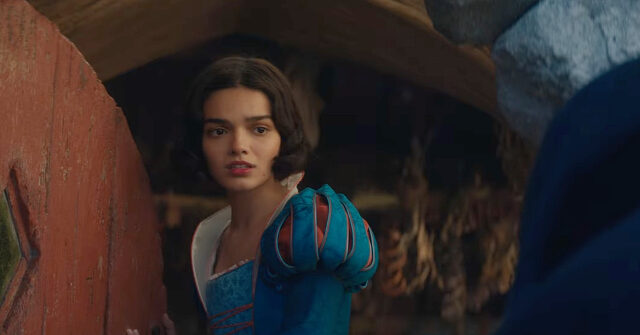The recent official trailer for Disney’s live-action remake of “Snow White and the Seven Dwarfs” has quickly garnered a tidal wave of backlash, achieving nearly 3.7 million views in just 22 hours, yet facing an overwhelming disparity in user engagement. With a staggering count of 215,000 downvotes compared to merely 17,000 upvotes, it’s evident that many viewers find the project problematic. The backlash seems to compound as it reflects a broader societal resistance against perceived political correctness in entertainment, particularly in light of Disney’s contemporary attempts to modernize its classics. This remake has sparked conversations about identity, representation, and the implications of notably altering time-honored narratives.
At the center of the controversy is Rachel Zegler, the actress portraying Snow White, often referred to derisively in the media as “The Mouthy Unibrow.” Critics have pointed out that instead of promoting her role, Zegler has instead dedicated much of her time to disparaging the original animated classic. Her statements, such as asserting that the character will not pursue a prince or dream of true love, attempt to align with a more modern feminist narrative. Zegler’s comments, however, have rubbed many fans the wrong way; they sense a lack of respect for a beloved source material while considering the changes unnecessary and even patronizing.
Additionally troubling for many was Zegler’s response to political events, particularly her vitriolic online remarks post-Donald Trump’s re-election, wherein she expressed her disdain for Trump and his supporters. These incendiary comments invited scrutiny on both her character and Disney’s decision to cast her. With Disney reportedly investing $350 million in the project, many speculate that Zegler’s outbursts could detrimentally impact the film’s potential success, further compounded by the film’s push of its release to March 2025 amidst this mounting critique. These circumstances have caused some to question the logic behind Disney’s casting decisions and overall marketing strategy.
The predicament worsens due to the initial conception of the film, which strayed from the original’s portrayal of dwarfs. Rather than featuring traditional characters as the title suggests, the film opted to present “seven magical beings,” an idea that elicited significant backlash from fans. Faced with palpable discontent, Disney ultimately reverted to the classic depiction of dwarfs while eschewing the inclusion of actors who physically fit that role. Instead, they have resorted to animation for these characters, which has further fueled the ire of audiences who feel this choice is an inadequate response to their criticism regarding representation in casting.
The core narrative that drives the film—a jealous Evil Queen confronting Snow White—has also been criticized for its implausibility, given the physical attractiveness of Gal Gadot, who portrays the Queen. This perceived absurdity has led to a myriad of humorous online comments, underscoring the disconnect between fan expectations and executive decisions during the adaptation process. Audiences have taken to mocking the film’s concept through social media, demonstrating an increasingly collective recognition of what they view as an insipid approach by Disney towards re-imagining their classics.
In contrast to the backlash against “Snow White,” other recent Disney projects like “Moana 2,” “Inside Out 2,” and the upcoming “Deadpool & Wolverine” have thrived at the box office, with no apparent political or divisive narratives. This pattern of success, devoid of the controversies that have marred the promotion of “Snow White,” hints at a potential underlying truth—that audiences may be more receptive to storytelling that respects the original intentions and themes without excessive reinterpretation or political messaging. The differences in audience reception underscore a growing sentiment that entertainment best resonates when it focuses on storytelling rather than ideological posturing.
Ultimately, the discourse surrounding the “Snow White” remake encapsulates larger tensions within contemporary media and culture regarding representation, nostalgia, and the evolving expectations of audiences. While Disney grapples with the fallout from contentious decisions, viewers continue to express their dissatisfaction with a product that seems to betray the cherished films of the past. The case of “Snow White” serves as a cautionary tale for studios about the potential repercussions of straying too far from beloved source material in pursuit of modern relevance.

